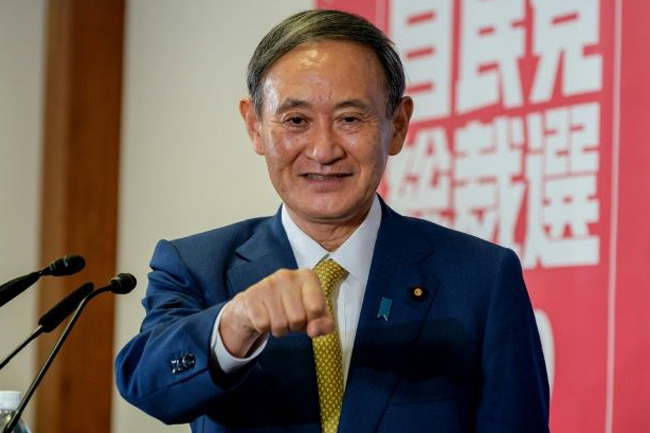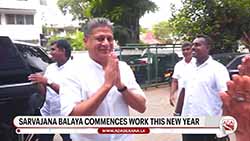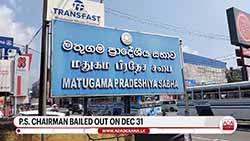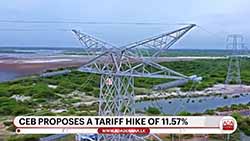Yoshihide Suga officially named Japan’s new prime minister
September 16, 2020 11:41 am
Japan’s parliament on Wednesday elected Yoshihide Suga prime minister, with the former chief cabinet secretary expected to stick closely to policies championed by Shinzo Abe during his record-breaking tenure.
Suga, 71, won an easy victory, taking 314 votes of 462 valid ballots cast in the lower house of parliament, where his ruling Liberal Democratic Party (LDP) holds a commanding majority.
He bowed deeply as lawmakers applauded following the announcement, but made no immediate comment.
“According to the results, our house has decided to name Yoshihide Suga prime minister,” lower house speaker Tadamori Oshima announced after the votes were counted.
Suga is expected to announce his cabinet later Wednesday, with local media reporting he will retain a number of ministers from Abe’s last government.
Suga, who on Monday was elected leader of the LDP, is viewed as a continuity candidate and has said his run was inspired by a desire to pursue Abe’s policies.
Abe, who resigned earlier Wednesday along with his cabinet, is ending his record run in office with a year left in his mandate.
He was forced out by a recurrence of ulcerative colitis, a bowel disease that has long plagued him.
Suga has spent decades in politics -- most recently as chief cabinet secretary, where he was known for pushing government policies through a sometimes intractable bureaucracy.
He has also been the face of the government, doggedly defending its policies as spokesman, including in sometimes testy exchanges with journalists.
His upbringing, as the son of a strawberry-farmer father and schoolteacher mother, sets him apart from the many blue-blood political elites in his party and the Japanese political scene.
But while he has championed some measures intended to help rural areas like his hometown in northern Japan’s Akita, his political views remain something of a mystery.
He is viewed as more pragmatic than ideological, and during his campaign spoke more about the need to break down administrative obstacles -- so-called bureaucratic silos -- than any grand guiding principles.
He will face a raft of tough challenges, including an economy that was already in recession before the coronavirus pandemic.
Suga has said kickstarting the economy will be a top priority, along with containing the virus -- essential if the postponed Tokyo 2020 Olympics are to open as planned in July 2021.
His recipe for doing that? More of the same, he says.
“In order to overcome the crisis and give the Japanese people a sense of relief, we need to succeed in what Prime Minister Abe has been implementing,” Suga said after being elected LDP leader on Monday.
Suga’s cabinet is expected to bring few surprises, with Foreign Minister Toshimitsu Motegi and Finance Minister Taro Aso expected to stay on in their jobs.
Defence Minister Taro Kono is tipped to be replaced by Abe’s brother Nobuo Kishi, who was adopted by his uncle as a child and carries his surname.
Kono is reportedly set to become minister in charge of administrative reform, a portfolio Suga considers particularly important.
Just two women are so far reported to be in the cabinet, as Olympic minister and justice minister, down from the three who served in Abe’s last government.
Analysts say Suga is likely to stick with his predecessor’s signature Abenomics programme, involving vast government spending, massive monetary easing and the cutting of red tape.
On the diplomatic front, Suga is a relative novice, with little foreign policy experience.
There too, experts say, he is likely to tread the path charted by Abe, prioritising the key relationship with the United States, whoever is president after November’s election.
Relations with China may prove trickier with a global hardening of opinion against Beijing after the coronavirus and unrest in Hong Kong.
There has been speculation that Suga could call a snap election to consolidate his position and avoid being seen as a caretaker prime minister, but he has been circumspect on the prospect.
Abe will stay on as a lawmaker, with some mooting the possibility he could undertake diplomatic missions.
On Wednesday morning as he prepared to resign, Abe said he had given “all my strength” and was ending his tenure “with a sense of pride”.
“I owe everything to the Japanese people.”
Source: AFP












